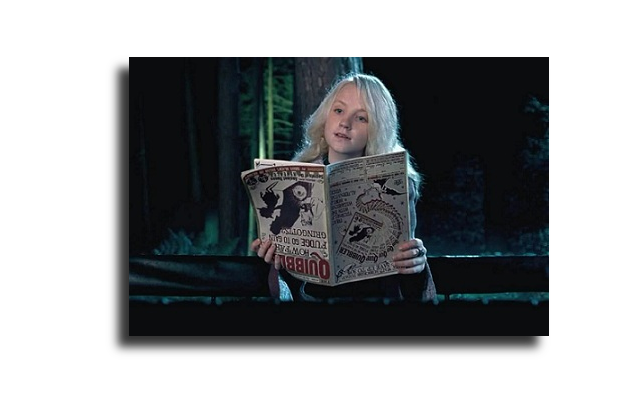Post by misscharlotte on Aug 14, 2015 6:20:02 GMT -6
Mr Ollivander
Renowned wandmaker Mr Ollivander owns the wand shop Ollivanders: Makers of Fine Wands Since 382BC on Diagon Alley. His shop is widely considered the best place to purchase a wand.
New from J.K. Rowling
Birthday: 25th September
Wand: Hornbeam and dragon heartstring, twelve and three-quarter inches, slightly bendy
Hogwarts house: Ravenclaw
Special abilities: An incomparable understanding of wandcraft
Parentage: Wizard father, Muggle-born mother
Family: Married, one son, one daughter (deceased)
Hobbies: None; his profession is his obsession
The family of Ollivander has long been associated with the mysterious profession of wandcraft. It is said that the name means 'he who owns the olive wand', which suggests that the original Ollivander arrived in Britain from a Mediterranean country (olive trees not being native to the UK). Mr Ollivander himself believes that his earliest forebears in this country arrived with the Romans, and set up stall (subsequently shop) to sell to ancient British wizards whose wands were crude of construction and unreliable in performance.
Mr Ollivander is arguable the finest maker of wands in the world, and many foreigners travel to London to purchase one of his wands in preference to those on offer in their native lands. Mr Ollivander grew up in the family business, in which he showed precocious talent. He had the ambition of improving upon the cores and wand woods hitherto used and from his earliest days conceived a single-minded, even fanatical, determination in his pursuit of the ideal wand.
Prior to Mr Ollivander's proprietorship of the family business, wizards used a wide variety of wand cores. A customer would often present the wandmaker with a magical substance to which they were attached, or had inherited, or by which their family swore (hinted at by the core of Fleur Delacour's wand). Mr Ollivander, however, was a purist who insisted that the best wands would never be produced merely by encasing the whiskers of a favourite Kneazle (or the stalk of a Dittany plant that once saved a wizard's father from poisoning, or the mane of a kelpie a witch had once met on holiday in Scotland) in the customer's favourite wood. The best wands, he believed, had cores of immensely powerful magical substances, which were expertly enclosed in specially selected and complementary wandwoods, the result to be matched to an owner with whom the wand itself felt the most affinity. While there was initially substantial resistance to this revolutionary way of crafting wands, it swiftly became clear that Ollivander wands were infinitely superior to anything that had come before. His methods of locating wand woods and core substances marrying them together and matching them to ideal owners are all jealously guarded secrets that were coveted by rival wandmakers.
Renowned wandmaker Mr Ollivander owns the wand shop Ollivanders: Makers of Fine Wands Since 382BC on Diagon Alley. His shop is widely considered the best place to purchase a wand.
New from J.K. Rowling
Birthday: 25th September
Wand: Hornbeam and dragon heartstring, twelve and three-quarter inches, slightly bendy
Hogwarts house: Ravenclaw
Special abilities: An incomparable understanding of wandcraft
Parentage: Wizard father, Muggle-born mother
Family: Married, one son, one daughter (deceased)
Hobbies: None; his profession is his obsession
The family of Ollivander has long been associated with the mysterious profession of wandcraft. It is said that the name means 'he who owns the olive wand', which suggests that the original Ollivander arrived in Britain from a Mediterranean country (olive trees not being native to the UK). Mr Ollivander himself believes that his earliest forebears in this country arrived with the Romans, and set up stall (subsequently shop) to sell to ancient British wizards whose wands were crude of construction and unreliable in performance.
Mr Ollivander is arguable the finest maker of wands in the world, and many foreigners travel to London to purchase one of his wands in preference to those on offer in their native lands. Mr Ollivander grew up in the family business, in which he showed precocious talent. He had the ambition of improving upon the cores and wand woods hitherto used and from his earliest days conceived a single-minded, even fanatical, determination in his pursuit of the ideal wand.
Prior to Mr Ollivander's proprietorship of the family business, wizards used a wide variety of wand cores. A customer would often present the wandmaker with a magical substance to which they were attached, or had inherited, or by which their family swore (hinted at by the core of Fleur Delacour's wand). Mr Ollivander, however, was a purist who insisted that the best wands would never be produced merely by encasing the whiskers of a favourite Kneazle (or the stalk of a Dittany plant that once saved a wizard's father from poisoning, or the mane of a kelpie a witch had once met on holiday in Scotland) in the customer's favourite wood. The best wands, he believed, had cores of immensely powerful magical substances, which were expertly enclosed in specially selected and complementary wandwoods, the result to be matched to an owner with whom the wand itself felt the most affinity. While there was initially substantial resistance to this revolutionary way of crafting wands, it swiftly became clear that Ollivander wands were infinitely superior to anything that had come before. His methods of locating wand woods and core substances marrying them together and matching them to ideal owners are all jealously guarded secrets that were coveted by rival wandmakers.






